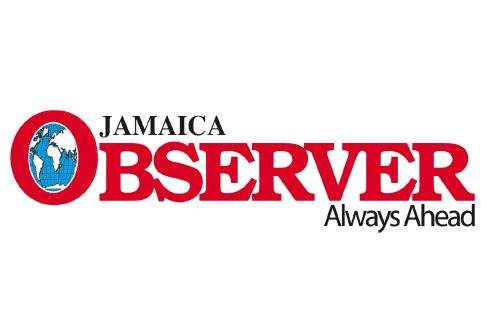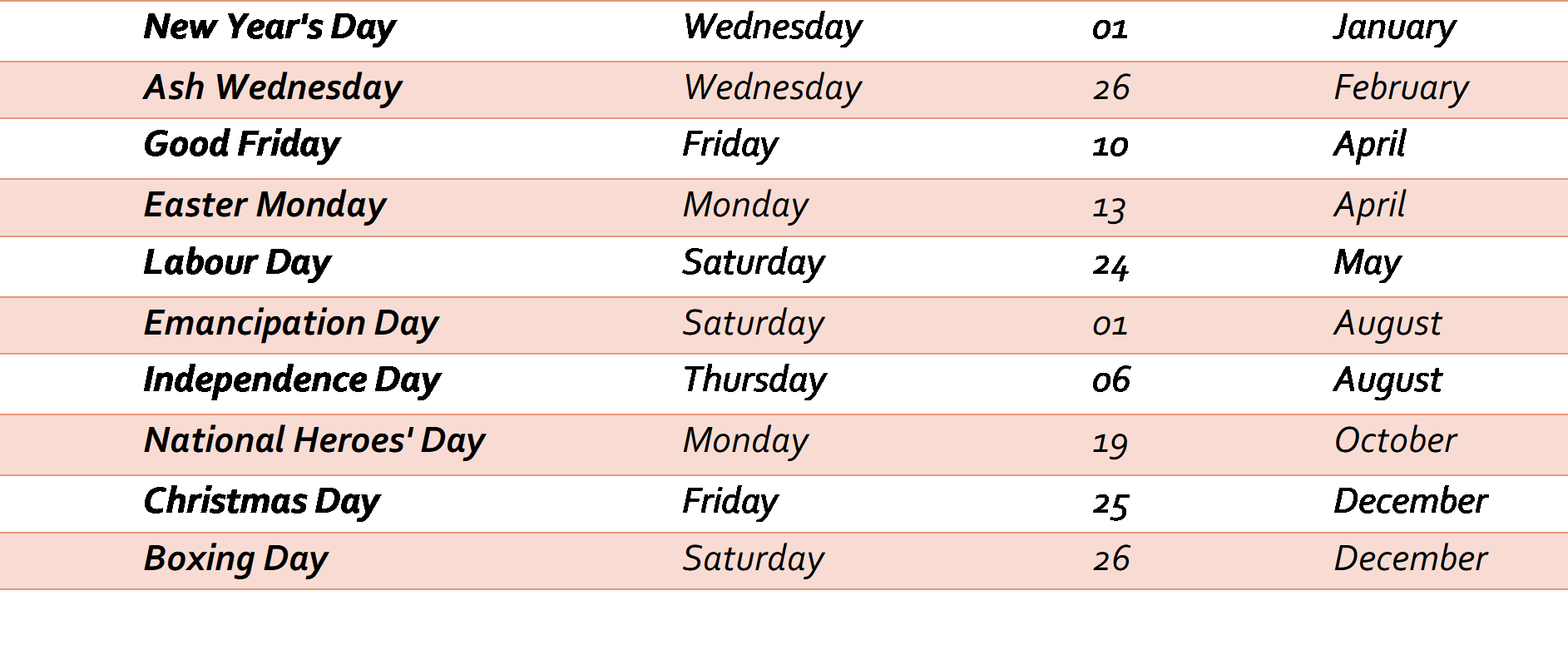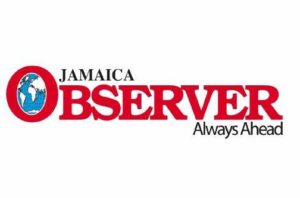Author: Caribbean HR Solutions
Remote Workforce solution table 1
| Position | Average Yearly US Cost* | Average Yearly JA Cost | Cost Savings Per Employee |
|---|---|---|---|
| Bill Gates | 555 77 854 | 555 77 855 |

Mental, emotional fortitude — not gender — make for good leaders
The Maybelline commercial tagline — ‘Maybe she’s born with it’ — rings true in the office too. The reality is that many executives, managers, and CEOs are women, increasingly so over the last 15 to 20 years in particular. This means that a growing number of female leaders at varying levels of organisations are crafting company culture.
This is difficult enough during times of growth and prosperity; imagine performing that tightrope balancing act during a crisis. Patriarchal stereotypes posit that women are naturally more emotional creatures, which makes them ideally suited for ‘complementary roles’ in human resource (HR), for example, but this kind of generalisation masks some of the real issues – temperament under pressure and emotional intelligence.
You Can’t Handle The Truth
It’s obvious that men and women are different. This is not only natural law but also advantageous when it comes to how we process information and communicate. While one’s ability to think strategically and see the proverbial ‘big picture’ is more reliant on experience, exposure, and socialisation, the argument about which gender is the better leader or decision-maker has always been mooted.
Research proves that leadership, especially in times of crisis, weighs heavily on the mental and emotional fortitude exhibited by the individual, regardless of gender. Those who emerge successful are those more adept at connecting with and influencing their team members with a mindset that embraces challenges and change, and those who communicate the harshest realities without completely demotivating their core teams.
Those qualities, which are evidence of mental and emotional mettle, are increasingly key to HR professionals and headhunters in their assessment of candidates, as much as their skillset and competencies. Being ‘book smart’ but weak as a leader does nothing for staff morale or the bottom line in trying times.
EI vs AI
EI, or emotional intelligence, speaks to the ability to manage one’s emotions and interpersonal relations with empathy. Meanwhile, AI, artificial intelligence, in its strictest sense refers to computer systems performing some degree of human sensory and autonomous decision-making functions. In a human context, however, AI is used to refer to the standard intelligence indicators.
Successful leaders will need to embody both, particularly in times of crisis.
A recent Harvard Business Review article by Ron Carucci reported that 38 per cent of executives said they didn’t expect the loneliness and isolation that accompanied their jobs, and 54 per cent said they felt they were being held accountable for problems beyond their control. Welcome to the reality of the working world! ‘Other duties as assigned’ on your job description means just that; a caveat to do the dirty work if and when required to.
Before getting there, however, we submit that leaders first need to ruthlessly assess their own strengths and weaknesses and let openness and authenticity drive their words and actions. Calm, honest leadership trumps bravado and empty rhetoric every time, moreso now than ever. And that’s a person thing, not a gender thing.
Until next time, leaders keep lookin’ up, and stay safe!
Read more:

Good LUCK with COVID-19
It’s difficult not to talk about this mushrooming health crisis. Every week seems worse than the previous ones. However, if only for the sake of maintaining our mental health, we should seriously consider strategically managing our information intake. The positive side effects of this aren’t just personal; they can be financial and occupational as well. How so, you might ask, especially when it seems that everyone everywhere is already jobless or not far from it? If history has taught us anything, it’s that every crisis presents opportunities. In that context, luck is nothing more than ‘Labour Under Correct Knowledge’ (LUCK). It means preparing for unforeseen eventualities before they occur, to be as ready as we can be.
The New Normal
Companies and governments the world over are helping industries, firms and employees get through the crisis. In that regard Jamaica is no different. However, these support systems are intended to mitigate the devastating financial fallout, not what will follow. Yes, companies and self-employed people will have access to loans but repayment is still mandatory, for these aren’t grants.
Let’s take a step back. Many companies cannot ‘afford’ to layoff all their employees for one simple reason — staff recruitment and retention is often very costly and time-consuming. Imagine starting all over in three to six months, desperately trying to rehire your best and brightest. Human resource (HR) professionals will attest to how difficult a strategic decision this is for every firm, especially employers of choice.
Sadly, however, this new reality forces everyone to make tough decisions. In some cases, it will come down to the weighted value of each individual in the businesses’ continuity planning. If employees were rated in bands like ‘A’, ‘B’ and ‘C’, for example, only the A-rated team members might be retained, and perhaps only on partial salary, to ensure a smoother post-pandemic transition. This is when making oneself invaluable can bring good LUCK to the select few.
Home Work
This is your new life. After three weeks of Netflix-ing and chilling, we have to get back to ‘work’. What work if I’m unemployed and most companies are closed, you ask? Well, let’s start with what you’re trained to do or are otherwise good at. You were hired because you have a certain skill set and intellect. Now, while the next few months will be very challenging, you now also have time you’ve never had before in your adult life. This is an excellent opportunity to assess and audit yourself. Do a SWOT analysis of YOU, as if you were a business, and strategise how to leverage all you have to make yourself more marketable. Don’t know Microsoft Excel? Learn it for free online. Make presentations often? Improve your PowerPoint skills or upgrade to Prezi to wow audiences.
What about starting a business? It takes months to create a business plan, establish branding, gain a presence on social media, build a website, etc. But guess what? You now have a few months. All you need is a device, Internet access and willpower. No excuses! Get started on creating your own LUCK.
Until next time, leaders, keep lookin’ up and stay safe!
Read more
http://www.jamaicaobserver.com/career-education/good-luck-with-covid-19_191303

Work from home…..
What a difference a month makes! Like other life-changing events – say the birth or death of a loved one, or a world war – the effects tend to have a profound impact on our individual and collective perspective. This is what the novel coronavirus pandemic has forced all of us to do, irrespective of public and corporate status – reflect.
As with the virus itself, no one is immune from the effects of what is already a global economic catastrophe. And yet, despite early warnings of what was to come for at least two months, many employers are just now scrambling to craft a survival strategy for business continuity. Even with recent experience with other virus strains, there seems to be no playbook as to how to handle this situation from a business perspective.
Hardware & Slumber
It’s one thing to be using the now-trending terms ‘work from home’ or ‘teleworking’ as potential solutions, for leaders and Human Resource (HR) professionals on the front lines can bear witness to the fact that most organisations are prepared to execute in theory only. Not many small-and medium-sized firms, even employers of choice, actually have the infrastructure and systems in place to allow a significant percentage of their labour force to work remotely.
Here are the stark realities:
The hospitality industry, where physical interaction is vital to product and service delivery, is all but shuttered. So, in tandem with labour laws, while simply trying to stay solvent, many companies have had to make decisions they never imagined in their worst nightmares, and tell most, if not all, their workers that they no longer have a job. For organisations that do provide virtual services via phone or online communication, they still have to make tough calls about which non-essential staff members go on rotation or go home altogether. Imagine a company without an HR department or partner to help guide them through these unchartered waters.
Doing Homework
So how does a company without an information technology department begin to create the physical infrastructure and offsite workplace procedures to maintain security protocols and productivity levels? Evidently, some industries like the global outsourcing sector are inherently better equipped for this transition given that the very foundation of their business model is built on providing offshore virtual business support services at varying skill competency levels. It’s periods like these that can mirror war-time catastrophe where having external partners experienced in managing life-changing business and social upheaval are crucial to surviving what is potentially an existential event.
Whereas virtual work was once considered a nice-to-have amenity, climate change and technology will probably force us to accept the kind of radical change that took place during the first industrial revolution. Whatever the cause, a seismic change in how we live and work is inevitable. The companies that survive and thrive are those that plan for the worst while expecting the best. In the meantime, let’s hope and pray for a vaccine soon. Next article we’ll discuss ways to create opportunities from tragedies, especially for those facing unemployment in these extremely challenging times.
Until next time, leaders keep lookin’ up, and stay safe!
Read more

Everybody has a price by Debra Fraser
We’d all like to think that we don’t have a price, but we do. There’s your personal net worth – your total assets value after liabilities and recurring expenses and there’s public value, an organisation’s perceived contribution to society – both of which are quantifiable, one more than the other. On the other hand, your occupational net worth is not so easily determined as several factors have bearing on what levels of compensation competing job seekers can command.
Qualifications vs Experience
Job matching speaks to fitting the right person with the right job based on their qualities and qualifications. Leaders and HR professionals are constantly striving to ensure that the best suited individuals are employed in roles that complement their skillsets and the company’s strategic objectives. Ideally, the employees have some level of mastery of their subject area as well as the requisite communication and motivation traits to succeed in their assigned positions. However, how much weight is given to the age-old tug-of-war between theoretical qualification and hands-on work experience? Are there algorithms to determine how much value to place on one factor over the other? Employers of choice now more than ever are increasingly particular about ensuring they hire the right person for the right job based on metrics not personality. So, if during college an applicant also interned in their field, worked summers at a related company and generally did all they could to gain experience, then we’d expect her to be given extra brownie points. Here’s another question. How does one quantify years of experience when it comes to salary negotiations?
The Negotiation Game
For starters, location can be more important than your qualification as a garbage collector in North America on average earns a higher salary than a manager in Jamaica. Even working in Kingston versus a rural area can result in salary disparities with candidates being equally qualified. So, what gives Job Applicant A the edge over Job Applicant B in the competitive salary game? The simple answer is, you get what you negotiate for. It’s not uncommon for two similarly qualified employees to have distinctly different compensation packages. Our company has partnered with Birches Group, who provide compensation and salary surveys for the Jamaican market. While benefits and bonuses are usually standard, basic salaries negotiations are often like a poker game, especially at the management level. It’s about selling yourself, not flinching and being confident in your ask. Of course, all that means nothing if the salary is set in stone, but usually there’s a range, not a finite number.
Most importantly, a candidate could deliver an Oscar-worthy performance during the interview process, but without a proven body of work and the academic training to fully grasp the scope of the desired task, it’s usually a futile expedition. There may be cases where a candidate is hired as a short-term fix but their ability to command their ideal salary would be severely hampered by their perceived value to the organization. It really comes down to what you’ve done so far and more importantly how well you’ve done it, and your level of qualification in the specific area you’re applying for. It makes no sense applying for a senior marketing position with a PhD in bio chemistry. When all is said and done, and all things being equal, how you present yourself and back it up on the job can mean the difference between an extra $100,000 or more per month in your bank account.
Until next time, leaders, keep lookin’ up!
Read more>>
http://www.jamaicaobserver.com/career-education/everybody-has-a-price_187820?profile=1270

This Means War — Part II by Debra Fraser
Last article we spoke about the effects the external and internal environments can have on team members’ stress levels and how this can manifest into workplace conflict. Emphasis was placed on mitigating potential red flag issues of harassment and tension by implementing effective screening and training measures. However, no amount of pre-employment evaluation or on-the-job behavioural conditioning can compete with hardwired familial socialisation. Values and attitudes have changed dramatically from a generation ago. Employers of choice have had to adapt to a new type of worker since much of what was normal or expected as it relates to working conditions and interpersonal relations are no longer acceptable or, in some cases, even legal anymore. The rules of engagement have certainly changed.
Society & the Workplace
If we are to use the evolution of our collective mentality as a barometer, then we ought to be more realistic about the dramatic shifts in expectations and our approach to handling workers’ concerns and conflicts. The ever-increasing role of HR practitioners underscores the value leaders place in trying to understand what makes employees tick, and more importantly from a business standpoint, what it takes to get maximum productivity out of them. In many organisations, managers and supervisors constantly feel like they’re chasing their tails when it comes to making progress with keeping motivation and positive worker interactions at high levels. However, if society is a reflection of our collective state, then the problem may be even larger than we are prepared to acknowledge, or even equipped to manage. It must be very frustrating for companies who are woke to the cultural and personal issues of their team members, and then invest heavily in training and engagement measures only to be continuously putting out conflict and discontentment fires among staff ranks. It begs the question, ‘what are we missing, or not doing right?’
A Vicious/Virtuous Cycle
Then there is the issue of employees we’ve invested in being headhunted by our competitors, leaving us in a treadmill-like state — putting out much effort but not really going anywhere. If we’re honest, we would concede that the war of attrition often has little to do with a better salary package offer elsewhere. As HR practitioners can attest, it is often the result of poor management. We can attest to how often managers allow good workers to leave because they didn’t lead or guide them well enough. When these team members under-perform, it is they themselves who take the hit when it’s really their superior who pulled the trigger. These kind of conflicts are common in many organisations, which can breed a culture of passive aggressive victimisation — a silent energy sapping, productivity killing disease in the war against workplace conflict. However, the mission is not impossible if leaders and workers are on the same page and are committed to a strategy of peaceful resolution and not make confrontation their first course of action.
Debra Fraser MBA, is CEO of Caribbean HR Solutions, a board member of the BPIAJ and the Global Services Sector, a member of the Human Resource Management Association of Jamaica, and Society of Human Resources Management. Please direct comments to dfraser@caribbeanhrsolutions.com or www.caribbeanhrsolutions.com
Read More
http://www.jamaicaobserver.com/career-education/this-means-war-part-ii_185428?profile=1270

This means war!
In these tense political times, with the set-up of police/military checkpoints in several Jamaican towns and the threat of World War III on the global stage, leaders in general, and HR professionals in particular, ought to be mindful of the negative influence that local and foreign affairs can wield over their workforce. Tension, anxiety, and Post-Traumatic Stress Disorder are very real, often undetected, factors that can adversely affect team cohesion and an individual staff member’s performance. These and other unaddressed personal and work-related issues can also have significant bearing on an organisation’s overall performance. They manifest in increased irritability and disagreeableness, which tend to spark arguments and conflicts over the smallest of matters.
Local and foreign affairs aside, issues within the workplace — take sexual harassment for example — have even greater propensity to cause stress and anxiety among workers. Often, these conditions escalate when companies fail to recognise the importance of establishing meaningful off-duty relationships by creating a supportive ecosystem for team members who are experiencing challenges.
Conflict Resolution 2.0
In tandem with the increased awareness around the world in recent years of gender equality and workplace sexual harassment, many Jamaican companies have been making an effort to comply with legal and moral codes of conduct. However, many HR practitioners can attest that taming the monster of sexual harassment in the Jamaican context, in particular, is a Herculean task indeed. In a culture where displays of bravado and crassness towards females are often met with cheers from male counterparts, addressing the psychological barriers of behavioural change is difficult, in some cases impossible. Therefore, a preventive strike approach to mitigating potential conflicts — through intensive and continuous assessment at recruitment, and training during employment — is one of the best places to begin.
Win-Win Situation
The truth is, regardless of background, upbringing and socialisation, most intelligent human beings understand when another person does not want their affections. The challenge for leaders is to break down the company’s guidelines in a manner and language so all team members get the message in a way they truly understand, for the situation could arise just because someone thinks that a particular phrase or action, even when rejected, is merely a way to poke fun and is not that serious.
The light at the end of the tunnel for organisations keen on developing a winning and harmonious team dynamic is to reassess current team members, and to follow up with ongoing team-building and sensitivity training. The big opportunity lies in developing a system to detect these characteristics at the recruitment stage.
This will require more than the usual face-to-face interview process. A complete social and psychological profile of each candidate is the new MO for getting a 360-degree analysis of who companies hire to represent their brand and core values — for, in the age of instant sharing and global reach, one posted conflict or toxic employee can make or break a company with the swipe of a finger.
Until next time, leaders, keep lookin’ up!
Debra Fraser MBA, is CEO of Caribbean HR Solutions, a board member of the BPIAJ and the Global Services Sector, a member of the Human Resource Management Association of Jamaica, and Society of Human Resources Management. Please direct comments to dfraser@caribbeanhrsolutions.com or www.caribbeanhrsolutions.com
Read more:
http://www.jamaicaobserver.com/career-education/this-means-war-_184278?profile=1270
Holidays and Your Payroll
Holidays can affect your payroll in a variety of ways. Perhaps one of the most obvious ways is that employers are required by Jamaican law to pay their employees at a premium. Another impact holidays can have is getting your employees paid on time.
Holidays affect your payroll because they are also bank holidays. This means that the banks are not open for operations and transfers will not be completed on that day. Hence, if your payroll falls on that date, not having proper preparations in place can cause your employees to be paid late. Whether you are on a weekly, fortnightly or monthly payroll schedule, there will be a time where holidays affect your payroll. It is important therefore to properly prepare for bank holidays to avoid mishaps.
Upcoming Jamaican Holidays 2020
*Brackets represent the date on which the holiday is actually observed

Who you are online often matters more than who you are on your résumé
It wasn’t that long ago when, to get all the background info you required on a job candidate, one had to use some serious journalistic or detective skills. Then, a recruiter had to make several phone calls to query an applicant’s resume and interview declarations. But the digital revolution has changed the game forever. Since just about everyone is on social media and many users never think about how what they post will portray or affect them in some distant future, quite a large percentage of them prejudice their chances of landing that dream job long before they’re even ready to submit their application. The new MO is that right after perusing a resume, and BEFORE deciding to interview the applicant, the recruiter Googles the person to examine his/her digital footprint. So, depending on that digital alter ego, that call may never come. Welcome to the future… when your past follows you everywhere. (cue creepy evil villain laugh).
Follow Me
In this age of Instagram, WhatsApp (and yes, people still use Facebook) it has come to pass that the young and the restless never give two hoots about how that questionable photograph, expletive-ridden post or song will appear to the world. Despite well publicised warnings about being socially aware and responsible on digital and traditional media platforms, prospective and existing employees persist in jeopardising their occupational career with poor decision-making, all for a few more likes and follows. It’s all good and well to present a clean-cut image of oneself throughout the interview and probationary period. However, sooner or later, that offensive post will show up in someone’s timeline, and then comes the all-access pass to the HR or GM’s office to answer to the company’s employee rules & regulations violation.
Do It For The Love
Simply put, in this new world where workplace diversity and gender sensitivity are catchphrases being enshrined into company culture, employers of choice are mindful when assessing their prospects not just on the basis of their qualifications, but equally so, on their social footprint. Case in point is the recent widely circulated video of the Edna Manley College valedictorian expletive shout-out during his speech. To many socially savvy and probably younger onlookers, it may seem cool. However, for blue chip companies and any organisation keen on traditional values, this could be a major red flag. See, to be selected valedictorian for a prestigious college is akin to being promoted to manager at a reputable company. Now, how would it look to have your star manager cuss some choice Jamaican vernacular at the annual shareholder’s meeting? Privacy as we know it, is a thing of the past. Employees need to get with the times and recognise that who you are online often matters more than what you present on your résumé.
Until next time, leaders, keep lookin’ up!
Read more……



